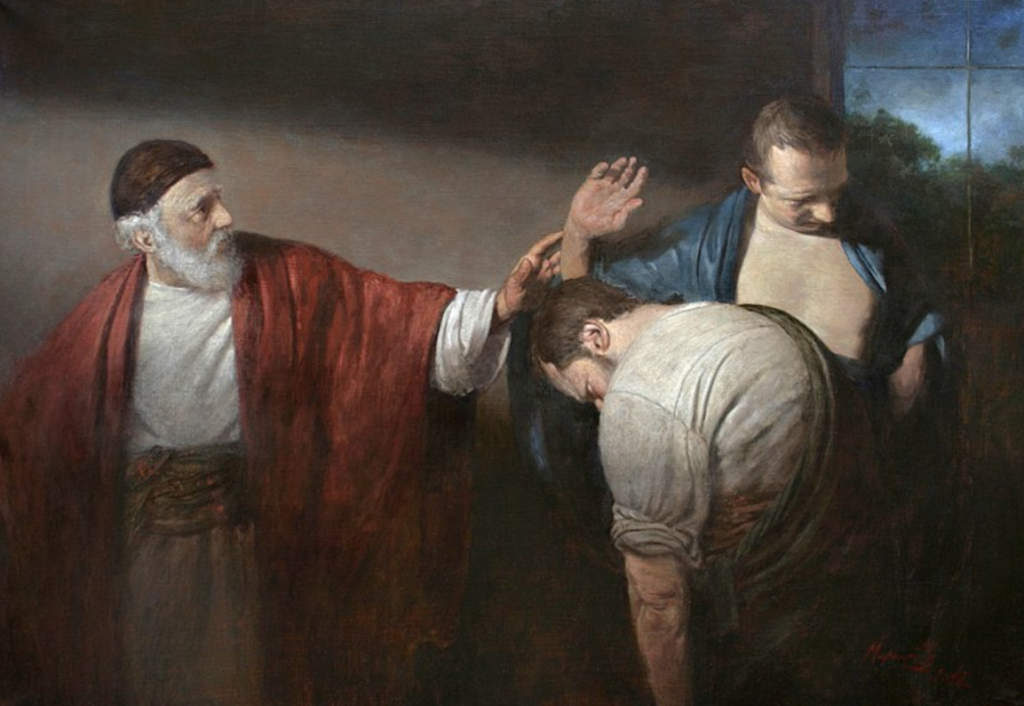When No Becomes Yes – The Gospel about the Father and His Two Sons
Organizing a family or friends’ vacation trip is always a hassle. Logistics require knowing the number of participants well ahead of time. In the beginning, many adult children with their families, siblings, neighbors, or friends very enthusiastically express their interest to participate in the vacation. It happens that later some of them lose their initial interest and find an excuse to resign. Some others who initially rejected our invitation finally want to join us. It is a real hassle.
The story presented by Jesus in this Sunday’s Gospel reminds us of such a situation, though it refers to a more important trip than a vacation: the journey of our life. It is a story of a father, the owner of the vineyard, and his two sons whom he invites to work in his vineyard. This story also reminds us of another family of a father and his two sons known as the story of the Prodigal Son (Lk 15:11-32).

In today’s Gospel, we easily recognize God himself as the owner of the vineyard. Jesus begins his story with the question: “What do you think?” This very question reveals his respect for the freedom of his interlocutors to see and judge for themselves. Jesus, equally as his Father in heaven, does not give up on attempting to engage others in ever-new ways. If one thing does not work, he will try another. Jesus does not coerce or browbeat; rather, he patiently tries to draw his listeners step by step into the sphere of luminous truth emanating from his Heart. He is motivated by nothing else but goodness and compassion, and he wants to share his riches with others. For that precise reason, Jesus presents the story of the two sons: he wants to move the hearts of his listeners. Maybe they will understand something.
The core question of this parable appears to be “doing the will of the father”. The father here, who is the owner of the vineyard, extends the same request or command to both sons. Their antithetical responses do not make either of them more or less his son. What really distinguishes the good son from the bad son is the nature of each eventual outcome.
The parable focuses on the contrast between an initially positive but shallow response and an initially negative but modifiable response. We can ask ourselves why the first son immediately refuses to collaborate with the father and then, as a few hours pass, changes his mind and goes to do the work. The first answer is: because he is able to do so. He is free. He is not a slave but a son. Obviously the first son does not fear punishment for his rudeness or disobedience. That son can change his mind from No to Yes because he received freedom to make his own decisions. His father does not insist or argue or threaten. This is the picture of our Father in heaven who wants neither collaboration nor love based on threats and coercion. He would rather wait patiently for his children to come around on their own to offering him their affection and assistance with total freedom. This element of the story reminds us of the story of the Prodigal Son where one of the sons also left freely the house of his father.
The parable of the Two Sons, brief as it is, brilliantly exposes the chronic tension in human life between saying and doing, between appearance and reality, between manifest intention and actual realization. It also stresses the gradual nature of the process of spiritual growth.
God is not so much looking for our initial response but rather he is interested in what we will do with our freedom in the long run. The decision we undertake must be made by ourselves. Nobody can substitute that for us, not even God himself. Instead, God continually surrounds us with his love and patience and gives us the space and nurture necessary to grow to share in his life. Only he has the patience to wait throughout a lifetime for all our instinctual Nos to become one eternal Yes to his love.
So, we too are called to be patient to live at peace with our human unfinishedness as we grope our way forward in the labyrinth of attitudes and choices, darkness and illumination, toward the fullness of the persons we are called to be.
Fr. Mark Jurzyk
